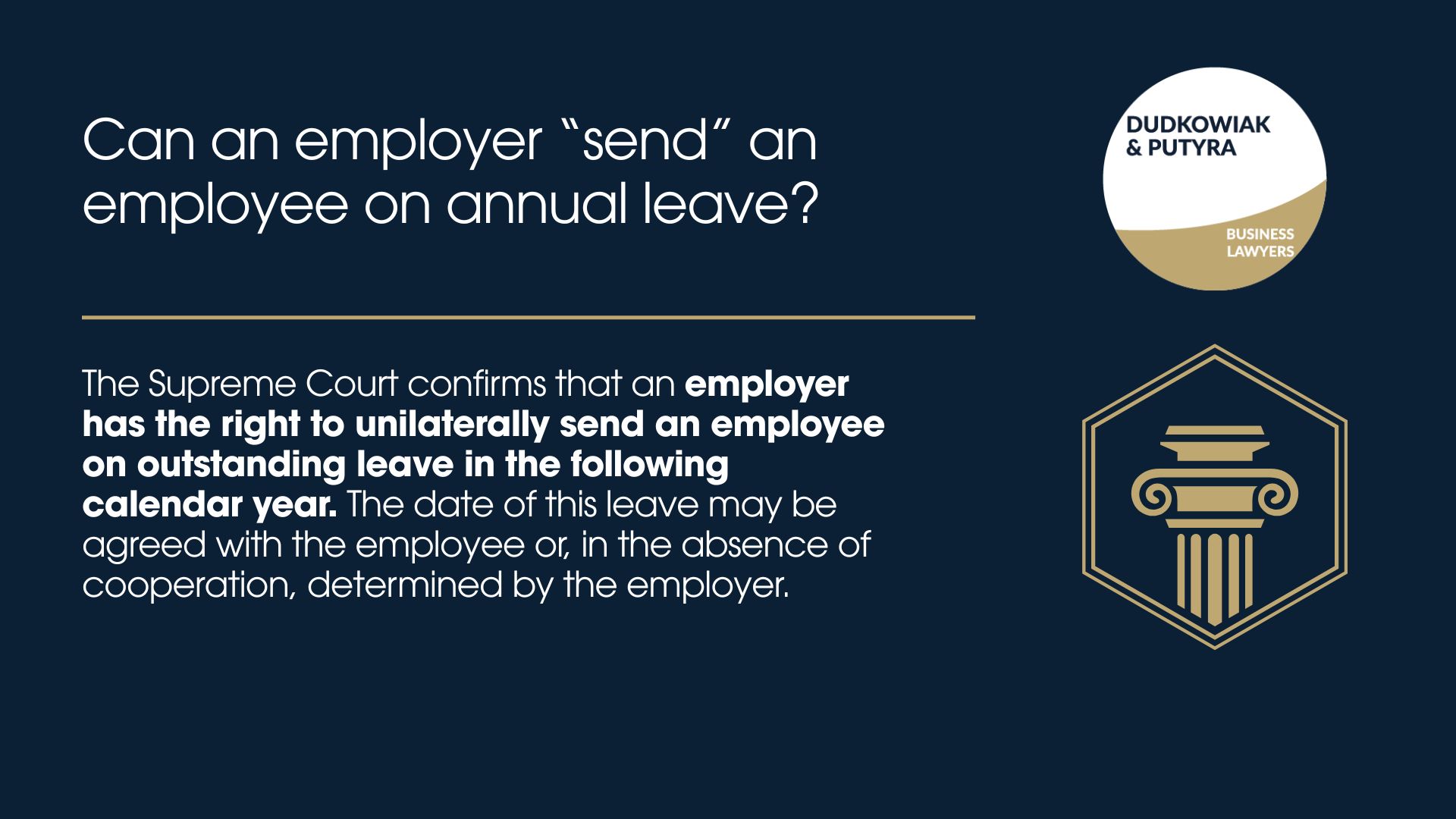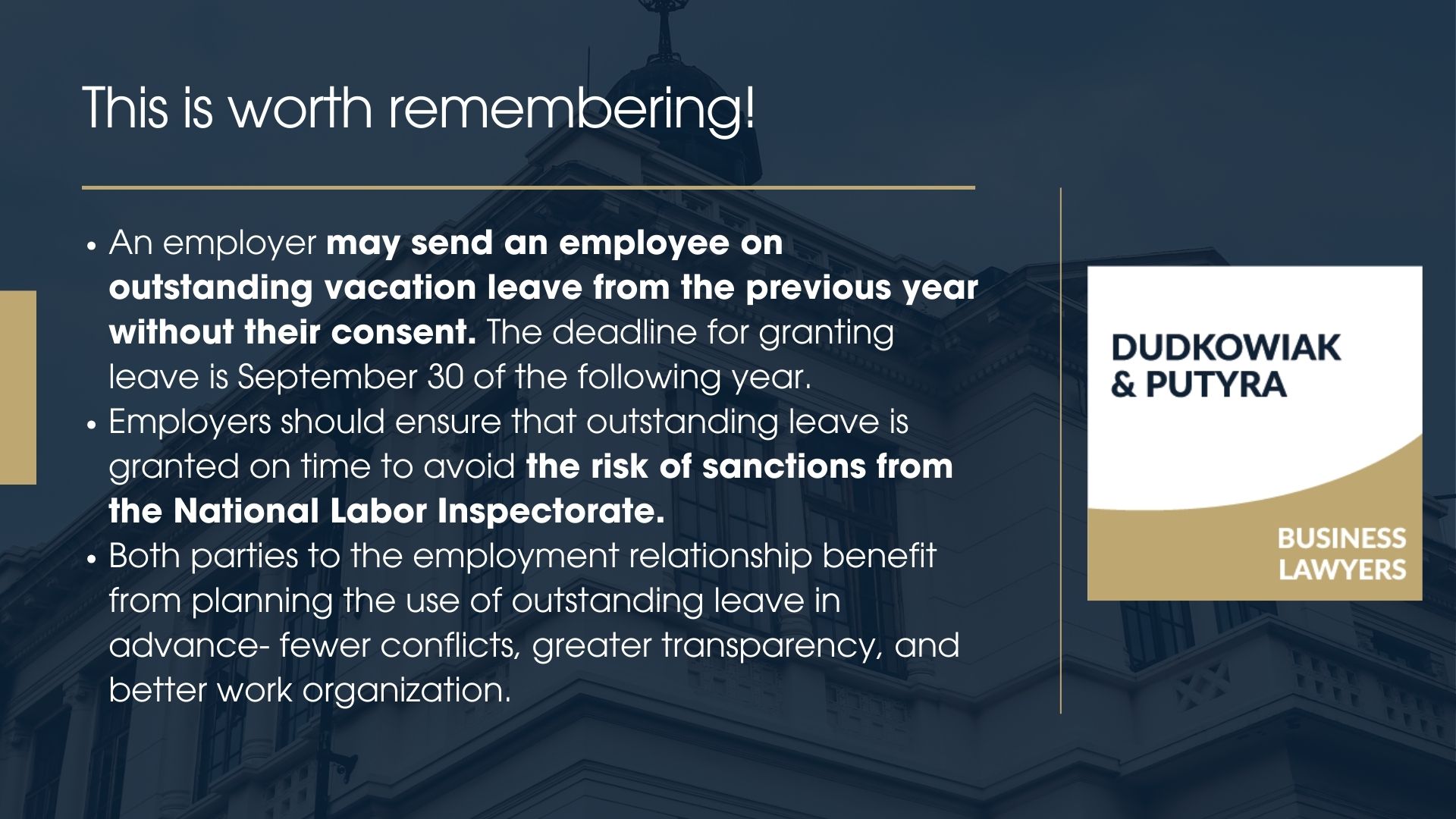Accrued annual leave and labor law- what risks do employers face after September 30, 2025
Summer is coming to an end, and with it, for many employees, the holiday season is over. However, September is not only a return to everyday duties, but also an important date in the labor law calendar. According to the Labor Code, by September 30, employers should grant employees any outstanding leave not taken in the previous calendar year.
Annual leave- an employee’s right or obligation?
The Labor Code clearly states that annual leave is an employee’s right that cannot be waived (Article 152 § 2 of the Labor Code). At the same time, the employer is obliged to ensure that it is used at the appropriate time. If the leave has not been used by the employee in the year in which the employee acquired the right to it, it should be used by the employee or granted to them by September 30 of the following calendar year (Article 168 of the Labor Code).
Can an employer “send” an employee on annual leave?
The answer to this question is not simple. When it comes to current vacation leave, this is only possible during the notice period. When it comes to outstanding vacation leave from the previous year, the answer is yes, even if the employee does not express a desire to use this leave.
The Supreme Court confirms that an employer has the right to unilaterally send an employee on outstanding leave in the following calendar year. The date of this leave may be agreed with the employee or, in the absence of cooperation, determined by the employer. The employer should ensure that the employee uses their vacation leave from the previous year by September 30 of the following calendar year.
Failure to comply with this obligation may be considered a violation of employee rights, which in the event of a labor inspection may result in a fine of between PLN 1,000 and PLN 30,000.

Does unused vacation time expire after September 30 of the following year?
No. The date of September 30 alone does not automatically result in the loss of the right to vacation leave. If vacation leave has not been granted, the right to vacation leave still exists, although, as a rule, it will no longer be used in kind. It should be remembered that the claim for vacation leave expires only after 3 years, counting from September 30 of the following calendar year.
This means that unused leave from 2024, which should have been granted by September 30, 2025, will only expire on September 30, 2028. If, in the meantime, the employee’s contract is terminated, the employer will have to include this leave in the pool of unused leave and pay the appropriate equivalent or oblige the employee to use this leave during the notice period.
When does an employer have to pay for unused vacation time?
Money for unused vacation time is only due when the employment relationship expires or is terminated (Article 171 of the Labor Code). In other cases, vacation time must be granted in kind, and the employee cannot demand compensation “on demand.” In practice, the equivalent for leave is payable on the last day of the employment contract if the employee has not used all of their leave entitlement by the time the contract is terminated.
In order to avoid this payment, the employer has the right to require the employee to use their vacation time during the notice period. However, it is not always possible to use vacation time before the termination of the employment contract– e.g., the employee goes on sick leave during the notice period, the vacation is longer than the notice period, or there is no notice period (e.g., termination of the contract for disciplinary reasons).
In such cases, the employer must settle the leave and pay the appropriate equivalent each time.
This is worth remembering!
- An employer may send an employee on outstanding vacation leave from the previous year without their consent. The deadline for granting leave is September 30 of the following year.
- Employers should ensure that outstanding leave is granted on time to avoid the risk of sanctions from the National Labor Inspectorate.
- Both parties to the employment relationship benefit from planning the use of outstanding leave in advance- fewer conflicts, greater transparency, and better work organization.

The end of September is not only the symbolic end of the holiday season, but also an important moment from the point of view of labor law. Employers, make sure your employees do not have any outstanding vacation days from last year that could become a burden after September 30. To stay up to date with all the regulations, subscribe to our newsletter!


